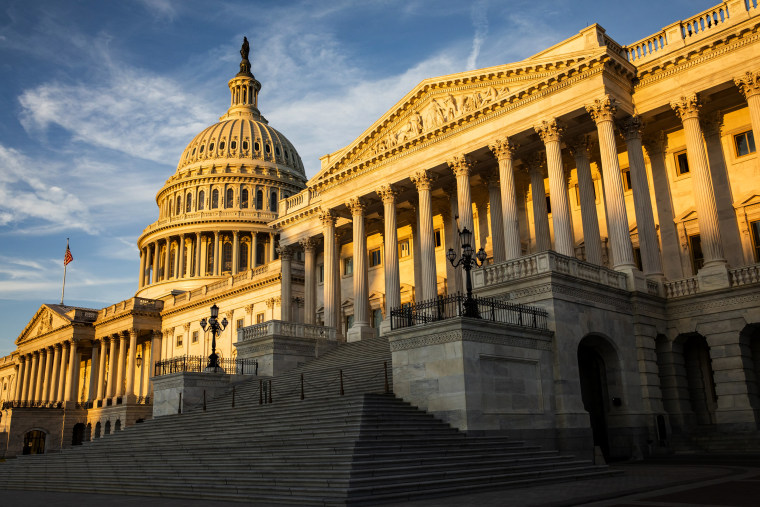It's been nearly seven months since the Democratic-led House passed an ambitious economic aid package, with the hopes that it would lead to constructive talks and an agreement that would help struggling families and businesses. Instead, Republicans responded with passive disinterest.
But all hope is not lost. With time running out, there was more action on this issue on Capitol Hill yesterday than there's been in quite a while. NBC News reported yesterday:
A bipartisan group of lawmakers outlined a temporary $908 billion coronavirus relief proposal on Tuesday, far less than Democrats had hoped for, aimed at breaking a stalemate that has persisted for months. The proposal, which includes more unemployment benefits, must still get the approval of Republican and Democratic leadership and is designed to include elements that will satisfy both parties.
This is, to be sure, an underwhelming pitch. The nine Senate authors -- four Democrats, four Republicans, and an independent -- appear to have made a good-faith effort to craft a blueprint that might actually pass, but it's a half-measure, featuring no direct stimulus payments to U.S. households, and is only designed to last through March 31.
Is it better than nothing? Probably, since it includes some state-aid resources and an extension on unemployment benefits, but it's still short of what the economy really needs.
Nevertheless, Senate Majority Leader Mitch McConnell (R-Ky.) appears to be looking at this from the opposite perspective: he's prepared to ignore the new bipartisan plan, preferring an even smaller and less generous package, similar to the one that's already been rejected by the House, and which is also at odds with Donald Trump's stated goals.
And while all of this no doubt seems discouraging, especially to those in desperate need of an economic lifeline, the fact that there's some renewed activity is itself important. Before this week, the door appeared to be closed. Now, it's ajar.
Indeed, while there's no evidence of any kind of breakthrough, actions, even some unconstructive ones, are preferable to silence. Over the last 48 hours, House Speaker Nancy Pelosi (D-Calif.) has connected anew with Treasury Secretary Steven Mnuchin; nine senators unveiled an attempted compromise; McConnell unveiled a new-ish blueprint; and Senate Minority Leader Chuck Schumer (D-N.Y.) partnered with Pelosi in making yet another new offer to GOP leaders.
There's not yet any real reason for optimism, but the odds of some kind of success are clearly better today than they were a week or two ago -- if only because the odds of success then were effectively zero.
Complicating matters, Congress also happens to be facing two important deadlines. The first comes a week from Friday, when a new spending measure will be necessary to prevent a government shutdown. The second comes toward the end of the month, when roughly 12 million Americans will lose their unemployment insurance benefits, among other key lifelines.
In other words, lawmakers -- without any real presidential input or leadership -- are exploring the possibility of passing two economic measures, one to prevent a shutdown, the other to lessen widespread hardship. All of this would need to get done rather quickly with inflexible deadlines on the horizon.
For his part, McConnell told reporters, "I think it will all likely come in one package." Watch this space.

